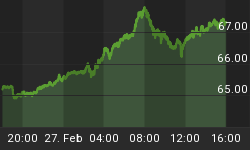The Biden administration has rolled out one of the most extensive vaccination programs on the planet, with the government hitting its latest target of 200 million vaccine shots in arms in 100 days. According to the Centers for Disease Prevention and Control (CDC), more than half of U.S. adults have received at least one dose, and all are now eligible to be vaccinated.
Bolstered by the program’s success as well as record levels of stimulus, the U.S. economy and job market have sputtered back to life with March unemployment levels edging down to 6% in the latest job report.
But things might not work out that smoothly for the anti-vaxxers group, if employers end up having their way.
A broad majority of U.S. employers has stated its intention to require employees to be vaccinated against the coronavirus as a condition of employment.
According to an ASU/Rockefeller Foundation survey via CNBC, 63% of U.S. employers will soon require proof of vaccination by their employees while 65% plan to offer employees incentives to get vaccinated.
Overall, 44% of employers will require all employees to get vaccinated; 14% will require some employees to get vaccinated while 31% will just encourage vaccinations.
No employment
And, these are not empty threats, either.
A good 42% of businesses say they will not allow employees who have not received the jab to return to the physical work environment, with 35% saying disciplinary actions are on the table, including possible termination.
The survey represents the responses of 957 facilities across 24 industry sectors in the United States, majority being businesses with 250 or more employees.
There are genuine reasons why employees are beginning to take a hardline stance when it comes to getting their employees vaccinated.
First off, America’s vaccine-supply crunch is over, and now its vaccine galore. The country has ordered, optioned, or procured enough doses to immunize its entire population more than five times over.
Second, anti-vaxxers are putting the country’s chancers at bringing Covid-19 under control in serious jeopardy. The U.S. needs to vaccinate between 70% and 85% of the population quickly to suppress the virus and limit its spread. A recent NPR/Marist poll reveals that ~60 percent of Americans said they plan to be immunized, if they haven't already, with refuseniks coming in at 25% thus putting the so-called herd immunity at risk.
Fortunately, the number of Americans who are resolutely anti-vaccine has declined to a stubborn 13 percent, so finding ways to win over the rest remains an urgent task.
Fortunately, again, employees who for one reason or the other fail to get vaccinated can still fashion a workaround by opting to work from home.
The ASU/Rockefeller Foundation survey says 66% of employers are planning to allow employees to work from home full-time through 2021, while 73% plan to offer flexible work arrangements when the pandemic is over.
That said, the vast majority--73% of businesses--still want employees to work from the office at least 20 hours a week, meaning many employees are bound to find themselves in a Catch 22 if they fail to get the jab.
Can businesses require proof of vaccination?
As businesses everywhere rush to adopt no jab, no job policies and develop so-called "vaccine passports," the first question that springs to mind is whether it’s even within their power to do so legally.
Tech companies, including Microsoft, IBM and Oracle, have been working on vaccine credentials that can be flashed at concerts, ball games, and airports for entry, while thousands of other businesses are pondering whether they should follow suit.
The Equal Employment Opportunity Commission has already weighed in, with the verdict that, "generally," employers have the right to require their employees to get one of the approved vaccines.
"It is lawful and ethical for a business to require proof of vaccination as a condition of working or getting service. The employer must offer medical and religious exemptions. Businesses have a legal and ethical obligation to provide a safe environment. Requiring vaccinations is the best way to do that," Georgetown Law professor and public health expert Lawrence Gostin has told CBS News.
People in some states might still be able to avoid having to flash vaccine passports everywhere they go.
Governors Ron DeSantis of Florida and Greg Abbott of Texas have made their opposition to vaccine passports clear, with DeSantis using his emergency powers to not only prohibit public entities, but also private businesses from requiring proof of vaccination for entry.
We’ll certainly be hearing more of this: Some experts have questioned where DeSantis' authority to restrict the freedom of private businesses lies.
By Charles Benavidez
















